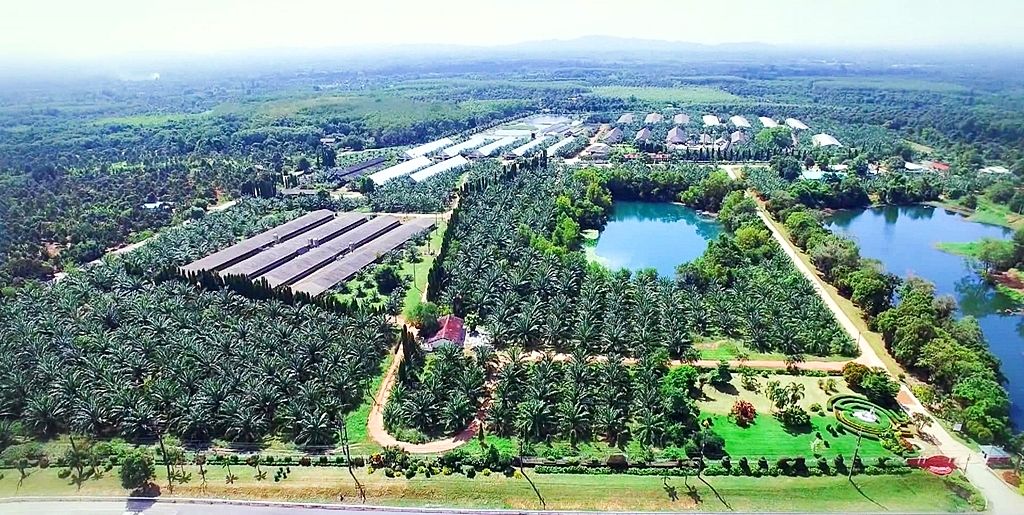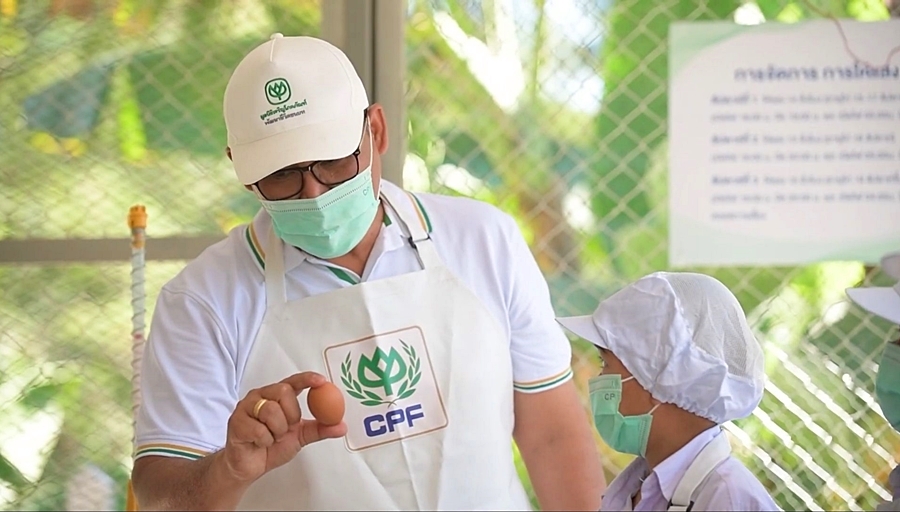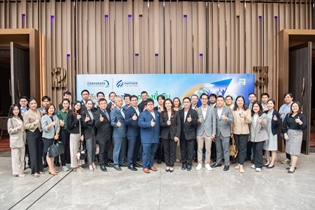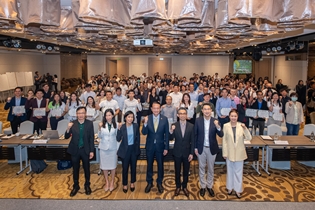

Charoen Pokphand Foods (CP Foods) is dedicated to maximizing resource efficiency and minimizing waste in its production processes, adhering to the principles of the Circular Economy. The company's Swine Business in Thailand has launched the "Waste No More: Continuing Sustainability" project, which transforms waste from pig farms, feed mills, and processing plants into valuable resources.
The project focuses on four key innovations, collectively known as the "Four Goods": Good Ash, Good Fertilizer Water, Good Gas, and Good Sludge.
"Good Ash: From Feed to Farm" involves repurposing ash from biomass boilers used in pig feed production into a disinfectant for bacterial control in pig farms, replacing traditional lime. After successful trials and approval from authorities like the Provincial Industrial Office of Prachinburi and laboratory analysis by AHDC, this initiative helps contract farmers reduce costs by over 300,000 baht per farm annually. Farmer Wichai Thanukaew, with over 20 years of experience, notes improved safety and effectiveness compared to lime, as the Good Ash maintains an alkaline pH even after rain, aiding in disease prevention.
"Good Fertilizer Water to Farmers" transforms treated wastewater from biogas systems into nutrient-rich water, enhancing crop yields and reducing reliance on chemical fertilizers. The biogas system also generates methane gas converted into electricity, cutting energy costs by 50-70%. CP Foods extends this resource to nearby farmers through the "Fertilizer Water Sharing Project for Farmers and Communities," helping them navigate drought conditions, increase income, and establish learning centers specializing in plant-specific fertilizer water mixtures.
"Good Gas to Communities" sees a CP Foods contract pig farm in Mae Sai District, Chiang Rai Province, using a fixed dome biogas system to supply gas to over 30 households in Ban Dai Sub-district. Supported by government funding through the local administrative organization, this initiative significantly reduces cooking gas expenses for households, community enterprises, market vendors, and even enables Ban Dai School to produce its own gas. Resident Chamroen Suwansorn reports that combining biogas with traditional gas extends a cylinder's usage from 1-2 months to 4-5 months. The community also utilizes the gas for local products like "Iodine Salted Eggs" and "Ban Dong Pa Sak Organic Rice Crackers," fostering local employment.
"Good Sludge to Farmers" involves drying and transforming sludge from the biogas systems, rich in beneficial microorganisms and nutrients, into high-quality organic fertilizer. CP Foods collaborates with agencies like the Department of Land Development and local agricultural experts to distribute this fertilizer to nearby farmers and royal initiative projects such as the Chakrabandhu Pensiri Plant Development Center. This effort reduces chemical fertilizer use, lowers production costs, and increases farmers' incomes. Bantheng Phoncharoen, an orchard owner, attests to over a 50% reduction in production costs and improved soil quality without degradation.
The "Waste No More: Continuing Sustainability" project received recognition at the CP Foods Sustainability in Action Awards 2024 for its exemplary practices in resource utilization. It reflects CP Foods' commitment to achieving Net-Zero greenhouse gas emissions and emphasizes knowledge sharing between employees and communities. By transforming waste into valuable resources, CP Foods is creating lasting social and environmental benefits, contributing to a sustainable future.








